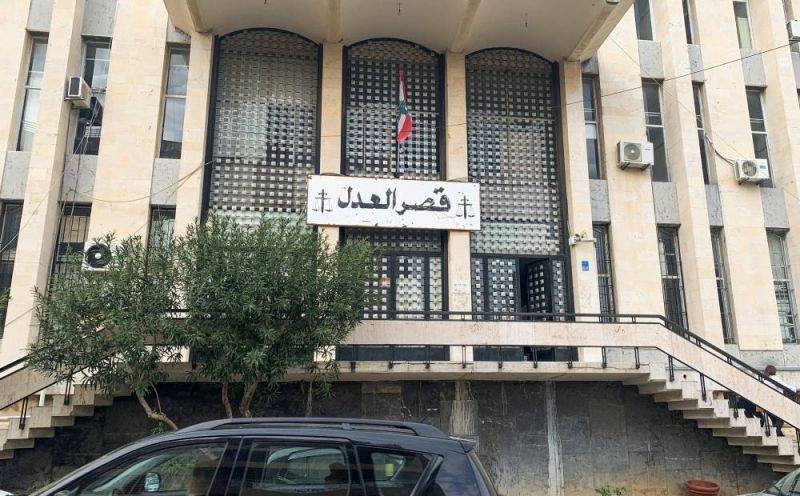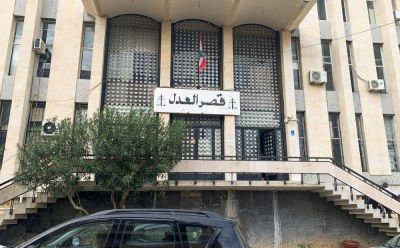
Baabda Palace of Justice in March 2022. (Credit: Reuters / File photo)
Over one hundred Lebanese judges decided on Friday to suspend their work sine die to protest their living and working conditions, several judges confirmed to L'Orient-Le Jour on condition of anonymity.
One of the judges said 111 magistrates had so far suspended their activities, but this number could rise with the resumption of the judicial year on Sept. 15.
He explained that one of the reasons behind the judges' decision to suspend their work was that they have still not received this month's financial aid stipend, which they had previously been receiving monthly from the magistrates' mutual fund.
The judges had been receiving these monthly benefits since January 2023. The approval of the monthly financial payments ended a months-long strike to demand a readjustment of their salaries.
Minimum means of subsistence
This monthly aid amounts to between $500 and $1,200 in cash, depending on the recipient's rank, and is added to the monthly salary.
According to one magistrate, judges receive a salary of up to LL6 million (equivalent to $67 at today's parallel market rate).
"Even with these stipends, we can no longer make ends meet," said one of the judges contacted by L'Orient-Le Jour. The judge noted the high cost of schooling for those with children and the high cost of healthcare, which the mutual insurance fund is no longer able to cover.
In a statement published by the state-run National News Agency, the 111 protesting judges said the work suspension would take place "until they can obtain minimum means of subsistence and work in dignity."
The text cites, among the reasons for this movement, "the state's inability to cover the health, hospitalization and education costs of the judges and their families and the deplorable working conditions in the courthouses."
Another magistrate told L'Orient-Le Jour how difficult it was for judges to continue working under the current conditions, "in the absence of the rule of law."
He stressed that, if not all magistrates have joined the protest movement, it's because "everyone is doing what they can according to their ability to resist, but how long will this be possible?"
Insalubrity
A third judge deplored the working conditions inside the courthouses, denouncing the unclean nature of the premises.
A source close to the Higher Judicial Council confirmed that council president Souhail Abboud "continues to make every effort to find solutions." The source said meetings have taken place to this effect in recent weeks between Abboud and the Minister of Justice, the president of the State Shura Council and the president of the Court of Audit.
The president of the HJC is normally responsible for the proper administrative organization of the justice system, and not for such financial matters.

